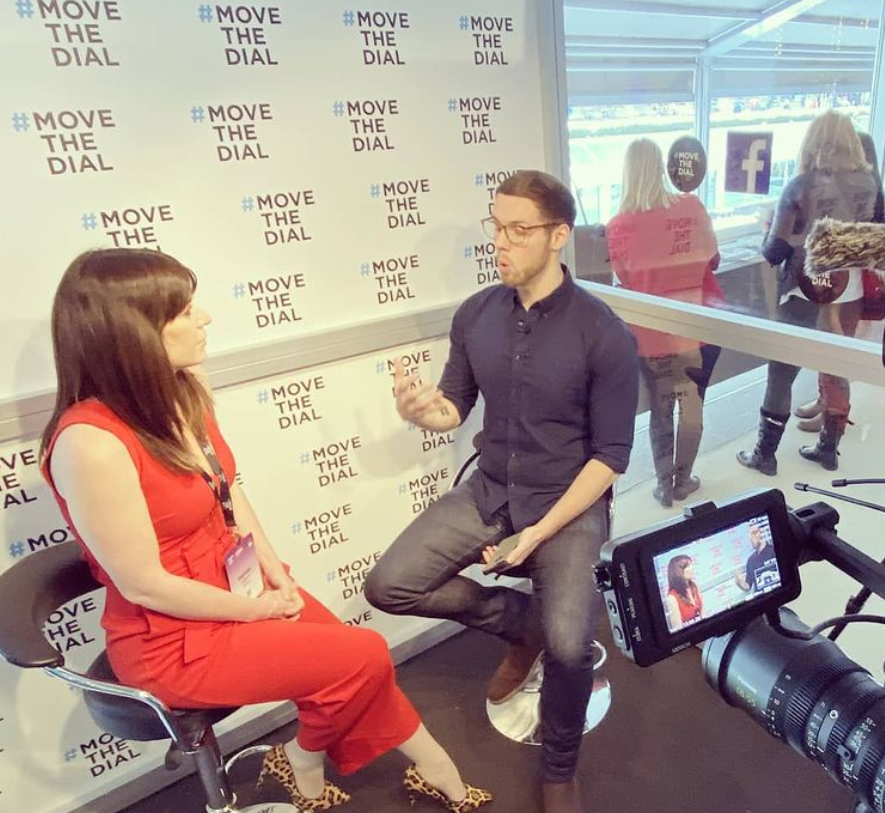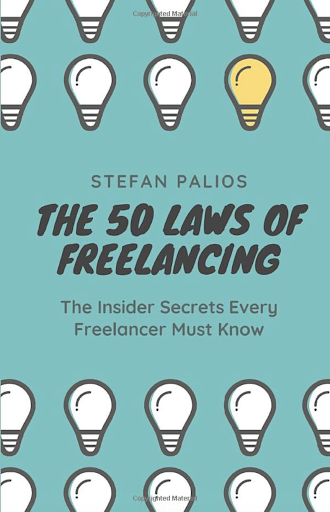1. Hey, can you please introduce yourself?
Hi! I’m Stefan. I’m a freelance entrepreneur. I’m a writer for startups and VCs, plus I run PulseBlueprint.com – a news site for freelancers and remote workers – and publish Remotely Inclined – an opinion / analysis newsletter about remote work.
I’m from a small town in southern Ontario, in Canada, and I currently live in Toronto. In between my hometown and moving to Toronto, I went to Yale University in Connecticut, which had me living in the USA for four years. At Yale, I majored in economic sociology – basically the study of the social motivations of business – with a minor in women’s and LGBT studies. It wasn’t the traditional path for someone interested in business (I initially thought I was going to major in economics or math), but I enjoyed the classes and eventually I had all the requirements of the major.
I started my career in consulting, first interning in New York City and then full-time in Toronto. I liked the problem solving aspect of consulting, but the endless travel or the requirement of being in the office when you weren’t on the client site started to grate on me. I eventually tried to start my own business, which is how I found my way into the tech startup scene. That business failed (miserably), but I learned a lot and made some connections that helped me build my current freelance business from the ground up.
2. What motivated you to choose remote working?
I wanted to detach my earning potential from my physical location. It’s not that I wanted to “be a remote worker”, but more that I didn’t want to be forced to be in an office every day just to earn money (or go to a plant, or any other physical location). I worked in an “information age” job (a tech startup) and yet I was metaphorically chained to my desk – even on days when there were no meetings or I was on client calls all day.

Working remotely, I can also spend time with my family more. Because I don’t have to worry about being in an office (or even one specific city), I get to choose where I spend my time, provided I have an internet connection.

3. What were your initial months like? Did it live up to your expectations?
My very first months of remote working were part time. I ran my freelance writing business before and after my 9-5. So each day there would be “remote” working hours where I made money from home or a cafe, and then were my full-time job hours where I had to be in an office.
What I call my true ‘first’ months working remotely happened later – when I took my business full-time and left the company where I was an employee. Those months were fraught, to say the least. I didn’t know how to work remotely. I kept expecting a boss to show up and ask me to do something – but I was a full-time entrepreneur at that point. Even though I didn’t like going to the office, the routine I’d developed – wake up, shower, walk to the office, get coffee, check email – was so ingrained that I didn’t know how to start my day successfully for the first few months.
It wasn’t until I built a new system that my days started getting easier. That system is pretty simple: each day, I write down my priorities in an email with four subheadings – run the business, grow the business, client work, and personal. As I complete those tasks, I cross them off the list. I of course do other tasks as well, but that list is the stuff I need to get done that day to feel productive and keep my business humming forward. Two years later, it’s worked out pretty well so far.
4. How did you find remote working roles?
I created them for myself.
When I worked in startups, I was told I had to be in the office. Working from home or working remotely was held as a privilege for only a few – and it was rarely given at that. The companies I worked for seemed to hold a view that people were fundamentally lazy and needed to be in the office or else they would not get any work done (for the record: I don’t know if this is the precise viewpoint everyone held. However, their actions and words implied as much). On a more positive side, the companies held the viewpoint that collaboration was best done in person – something I’m not sure I agree with entirely but I see the merit in it. My concern was not about those brainstorming moments, but instead the days where I was on calls with clients all day anyway. Those did not need to happen in an open concept office, disturbing everyone else.
So I made my own job. I started taking on freelance clients part-time while working, attending to that work in the morning before work and in the evenings after work. It started to bring in some good money. I did that for three years and decided to take my freelancing full-time, which I’ve now done for two years.
After making my own job, I started working on building a business system that could make money without my direct labor. That meant things like publishing a book (The 50 Laws of Freelancing), managing PulseBlueprint to bring ad revenue in the door, and other investments in growth.
5. What have been the best, good and worst aspects of remote working for you?
Location freedom! I’ve run my business while travelling to multiple cities in Canada, the US, and Europe. I love that I can make money anywhere I have an internet connection. On top of location freedom, I love the time control that remote work gives you.

As an entrepreneur, I technically have total control over my time, minus scheduled client calls. But as a remote worker in general, I gained so much more control over my time than when I was in an office. In an office, you can be tapped on the shoulder and pulled into so many extra meetings for their own sake. In a remote environment, people think twice before calling random meetings, which I love.
Good:
Once I built my own system for my day (my email system described above), days got more productive and smooth. But at the same time it became more difficult to detach from work. While some office cultures don’t really let you detach either (when you leave the office you’re expected to take your laptop home with you or respond via email on your phone), the physical separation offers a mental change of pace. As a remote worker who works mostly from home, that separation can be difficult. I’ve gotten better at closing my laptop or opening a new Chrome screen so my work tabs aren’t visible, but I’d say that’s one of the “meh” elements of remote work for me.
Worst:
This is more a symptom of my being a solopreneur, but I miss intellectual banter with colleagues. I had wonderful conversations with the colleagues that I sat with for hours a day. We built a relationship at the start because we were all sitting there – so why not.
This can absolutely still happen in remote companies with many employees, though it needs to be supported by clear intention and technology.
6. What tools do you swear by while working remotely?
I’m old fashioned: Email.
I use other technologies like Slack, Zoom, and Google Hangouts for specific needs.
Running my business, I primarily use Airtable for tracking and Wave for accounting / invoicing.
7. Your most exciting/ hilarious experience since you started working remotely.
I did a cultural exchange trip to France where I worked remotely while helping a family restore their centuries-old chateau! I ran my business the whole time, taking client calls from the grand salon or doing client work overlooking the deer park from my bedroom. It was an amazing experience.

The only issue? It was March 2020. My trip was cut short as the entire world went into lockdown, causing me to book an emergency flight home and getting back to Canada (my home country) just in the nick of time.
8. What is your golden advice to a new remote worker?
Get a daily routine. If you’re used to working in an office, you have no idea how ingrained that routine is. Changing that one thing (no commute) can throw off your whole sense of balance. On the flip side of this, also know it’s coming and be kind to yourself. The initial transition from office to remote worker will feel weird, but focus on developing new habits that work for your new way of working – don’t just translate in-office habits to the remote world. They will feel empty.
9. How do you see your career shaping up and your goals?
I plan to continue growing my business! My biggest challenge as an entrepreneur in 2021 is reducing ‘key person risk.’ I ran 100% of my business in 2020. This was great for a few reasons – limited overhead, not having to manage anyone, etc. – but at the same time was a huge risk for both my mental / physical health and for the continuity of the business. I realized that I didn’t really have a business, but instead had only made a job for myself like I talked about above.
So to reduce the key person risk, I’m learning more about when to strategically bring on employees or partners, how to work with them, and how to spot scalable business opportunities instead of focusing only on getting work for myself.
10. How do you expect remote working to evolve in the future?
I wrote about this in a blog post for Remotely Inclined – my predictions for the future of remote work. The biggest prediction I have is that we’ll see 1 billion remote workers by 2025. Whether those are employees, freelancers, or solopreneurs — it’s going to happen.
I also think, unfortunately, we’re going to see “never remote” companies. The companies that pride themselves on not offering remote work and having every employee in their offices. This, in my opinion, will come out of remote work being seen as an identity more than a tool (I’m strongly against this – I firmly believe remote work is a tool / process / system, but not an identity. I work remotely, but I’m not a “remote worker” from an identity standpoint). This will also come in tandem with ‘remote washing’ – the idea of changing marketing campaigns to talk about how you support remote clients. It reminds me of the gluten free craze a few years ago, when mustard companies started putting “gluten free condiment” on their bottles… despite the fact that mustard has never contained gluten.
11. Where can we follow you on?
Say hi on Twitter
Read Remotely Inclined (opinion / analysis about remote work)
Read PulseBlueprint (news for freelancers and remote workers)
My book: The 50 Laws of Freelancing